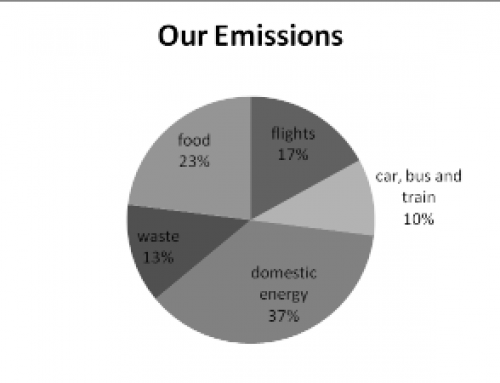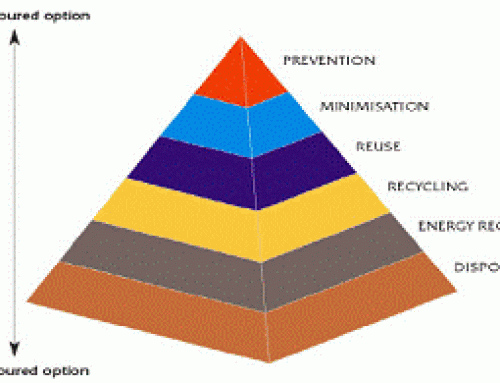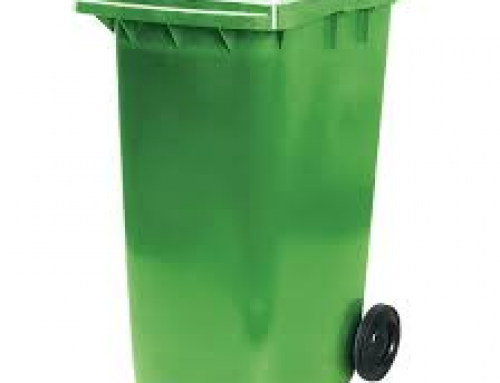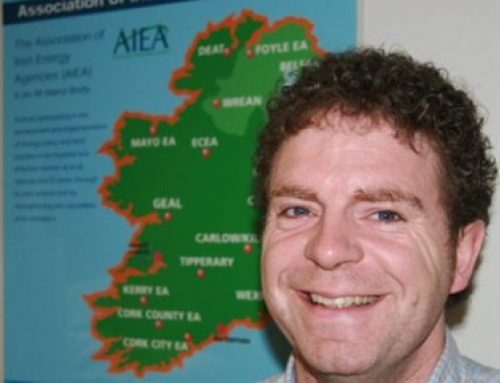Green School Committee & Birdhill Tidy Towns
You saved money and reduced your emissions. Thank you!
Autumn 2011
Green School Committee & Birdhill Tidy Towns
You saved money and reduced your emissions. Thank you!
Dear Birdhill resident;
As you know Birdhill Tidy Towns Committe and Birdhill National School together with the Carbon Clinic in Killaloe and University of Limerick researchers have been monitoring the emissions which arise due to our lifestyles and homes in Birdhill for the last two years. Each year you completed a survey form answering questions about how much stuff you consumed. We have used these survey forms and calculated your carbon dioxide emissions arising from your consumption. We have found four main types of consumption that affect the emissions of our homes and they are energy use within the home, transport, domestic waste and food consumption.
This newsletter describes the huge reduction in carbon dioxide emissions which our community have made in the last year. Thanks for all your effort.
Energy in our Homes
Emissions due to our use of fossil fuels at home, come from consumption of electricity, gas, coal, turf, wood and briquettes and cause well over one third of our emissions impact at home. Heating homes is very often expensive on our pockets and each year it is responsible for a column of carbon dioxide one square metre in extent, sitting on top of each chimney and extending upwards for
over 4 kilometres. Some of the changes we had recommended were replacement of old oil or gas boilers, installing a new wood burning stove, reducing internal temperatures by just one degree, house insulation, installation of central heating programmers, regular boiler maintenance, draught-stripping and sealing homes, taking shorter showers and not baths, and using lower temperatures for all washing in the home. The good news is that, since our first survey, our energy use has decreased by 16% over the last year. This conservation of fuel saves our natural resources, reduces global warming and saves money.
We found that more Birdhill residents are using gas hobs and ovens, pressure cookers and microwaves. Installing just energy-saving light bulbs can save over €90 per year for the average home. CFL bulbs can be bought on special offer now for €2 in the €2 shop on William Street in Limerick and sometimes in places like Woodies and Atlantic Homecare. We recommended using energy saving options like for example, lagging jackets, energy-efficient appliances, energy-efficient bulbs, presence detectors for lights, motion sensor lights, daylight sensors for lights, thermostats in rooms, automatic closers for doors and timed heating. Birdhill
residents increased their use of energy saving options by 20% and the time between boiler maintenance decreased by 17% and all these changes reduced emissions.
Your neighbours
Eddie & Fiona McInerney, Cooleen, have made conscious decisions to save energy in their home. They have thermostats installed in each room and use energy-saving bulbs throughout their home. Solar panels fulfil their hot water requirements for more than half the year. “We don’t need to turn on the immersion from April to October,” explained Eddie. “We find our wood-burning stove is a great source of heat for the house in winter. Our central heating burner uses kerosene and we ensure that it is serviced annually.”
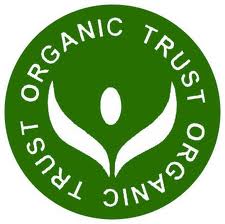
Your Neighbours
Christy & Margaret Hogan of Coosane are very conscious of the type of food they provide for their family. They have their own vegetable plot and produce fresh veg and potatoes for their table. They grow apples, blackcurrants, strawberries and peas in the back garden. “I always read labels when shopping, to check the date and source of the food,” Margaret says. “I shop regularly in the local Farmers’ Markets to ensure I get fresh produce and I usually buy natural food rather than something with too many additives.”
Our survey shows significantly more residents have installed renewable energy technology in their homes when compared to the national average. Birdhill residents are installing solar panels and heat pumps and are buying wind generated electricity. Kevin Connolly from Birdhill National School said ‘Make it your goal to stop using coal!’ and our final survey showed that Birdhill residents reduced their coal burning by 67%, peat burning by 93% and briquette burning by 76%. We also found that oil consumption was reduced by 26% as was gas consumption. These are massive changes and well done to all concerned for reducing Birdhill’s emissions!
Transport
In the first survey the use of cars and aeroplanes for transport made up over ¼ of our emissions to the atmosphere. With the rising price of petrol and diesel it can be of great benefit to your pockets and health and fitness to reduce your short car journeys. There are many small but important ways in which we can make significant savings on fuel costs and reduced emissions of pollutants. Some of
these are sharing daily car journeys, turning off idling engines, combining car trips, using an energy-aware driving style can save you over ? of your fuel, regular car maintenance, correct inflation of tyres, driving at 50mph, avoiding over-revving the engine unnecessarily, closing the sunroof, removing roof racks, sparing use of air-conditioning, not carrying unnecessary weight, buying more efficient cars, working from home and using local shops.
In the last year Birdhill residents reduced the time that they drive alone by 1/8. With more reasons for each car journey reduces the overall number of car journeys and their emissions. Thank you to Joe and Grainne Delaney from Cregough and all who participated!
Your neighbours
Joe Delaney endeavours to share journeys to work with others and said that: “I also use the train quite a bit….. I get a monthly ticket and I can use my time much better while on the train. Birdhill is very fortunate to have such a wonderful bus and train service.” Joe & Gráinne Delaney’s have reduced their emissions elsewhere as their timberframed house is well insulated. They find that their use of heating fuel has been greatly reduced. They also make a determined effort not to leave appliances on when not in use. They intend availing of grants to install further energysaving devices in the house.
Other transport
We know that if you are travelling to a warmer climate then flying is convenient but it is also one of the fastest and cheapest ways to cook the planet. The emissions of just one return flight to the US can exceed the emissions of one year’s car use. A few flights to remote locations, and we have been responsible for many tonnes of global warming gases. If we can reduce both short and long haul flights we can make the planet a better place for our children to inherit.
Domestic Waste
In the first year of our study we found that the average Birdhill resident’s waste habits were responsible for a column of carbon dioxide one square metre in extent, sitting on top of each wheelie bin & extending upwards into the sky for close to 1km. Our domestic waste accounted for approximately ? of our emission’s impact in Birdhill. The overall volume of waste sent to landfill was equal to the volume which we recycled but the landfill waste accounted for 4/5’s of our domestic waste emissions while our recycled waste accounted for the other 1/5 as recycled waste is exported to countries like China, Spain, England, & Belgium. In the last year Birdhill residents have responded to this and have reduced the waste they send to landfill by a massive 47%. The volume of recycled waste has also substantially increased and this is a great first step to reducing the emissions of our landfill waste habits. Well done to all involved!
In our leaflets we mentioned many ways of reducing emissions by treating our waste differently and we underlined that waste prevention is best. We can prevent waste through simple changes like bringing our own bags to the shop &basically buying items with no packaging. Shannon Cronin a former student of Birdhill National School would like you to know that plastic bottles can last up to 1,000 years and thinks we should reduce our use of plastic and prevent too much packaging. We have made great changes in the last year by reducing our landfill but we need to reduce our recycled waste too. Please join our group of concerned residents & produce less waste and therefore waste emissions. Reducing our waste volumes has huge benefits which include reducing our global warming impact, protecting wildlife habitats, reducing the demand for raw
materials, reducing the need for landfill space and reducing our refuse bills.
In our previous correspondence we mentioned that to reduce is better than to reuse which is better than to recycle. Reducing our waste is simple and can be done by avoiding heavily packaged goods and buying products such as washing powder, cereals, yoghurts, milk etc. in large containers to reduce packaging.
Reuse
Have you ever reused an empty ice-cream tub for storing leftovers instead of just throwing it out? Michael Gorman, a former student of Birdhill National School, keeps it short and sweet with his slogan:
“Its not confusing start reusing!”
By reusing items, we save money because we reduce our waste volumes. Reusing items is quick & so easy to do.
Recycling
Many household products can be recycled today like paper, magazines, junk mail, cardboard, aluminium cans, steel cans, plastic bottles, tetrapaks, glass bottles & jars, soft plastic packaging, textiles & clothes, hazardous household waste, timber waste, electrical equipment, batteries, computers, brown goods (TV, radio, etc), white goods (fridge, washing machines, etc), furniture,
fluorescent bulbs, ink jet/toner cartridges & mobile phones.
It is worth noting that recycling has emissions due to the huge distance this waste is carted around the globe & due to the energy intensive conversion of this waste into something useful. Though recycling is significantly better than sending waste to landfill, prevention, reduction and reuse are much better.
Composting
About 1/3 of the Birdhill residents compost their raw kitchen waste and this is good because composting dramatically reduces the amount of waste we send to landfill. Composting can reduce your waste volumes by one third, save lots of money & help your garden. We were delighted to find that more Birdhill residents have taken up composting their waste over the last year.
Well done to all concerned!
Your Neighbours
Owen & Aideen Kirby do not have a bin collection as there is no service on their road. They go to the landfill in Ballaghvenney every 5 or 6 weeks with a barrel of waste and a few bags of recyclables. They have a composter for kitchen and garden waste. “I clear out the compost bin every year, it makes great mulch for the shrub beds,” Owen also reuses and told us: “When the children’s clothes become too small for them, we pass them on to their cousins. We also give clothes some to St. Vincent de Paul.”
In our survey we asked you about ways you reduced your landfill waste other than recycling like prevention, reusing,
reduction and composting. We found that in the last year a third more Birdhill residents treat their waste in these
ways. It is evident that many many residents have tried to reduce their emissions due to their lifestyles and homes.
Thanks to all concerned
Food
In our first survey we found that consumption of food in Birdhill counted for approximately ¼ of the emissions from our homes. The research group in University of Limerick has helped many communities measure their emissions and some of these communities consume a lot more meat and dairy than the residents in Birdhill. Results of the first survey showed that an average N of our diet in Birdhill is meat and dairy and the remainder is fruit and vegetable based. This ranks as a low carbon diet as meat and dairy products create a lot more emissions than vegetable and fruit products.
We mentioned in our correspondence that locally produced food has less transport miles clocked up when it arrives on your plate. In our first survey we found that 1/5 of the average Birdhill residents purchases were local in origin but in the last year this increased to almost one third. Its fantastic that we are increasing the amount of local food we buy, well done for using local food, local farmers
markets and growing your own! In our first survey we found that on average 1/6 of what we eat in Birdhill is out of season. Out of season food usually requires excessive energy use and emissions due to storage freezing, storage cooling, heating of green houses and transport from afar. It would be great if we could reduce our use of out of season food this year. Eating organic food reduces our emissions and the alternative to organic food is the over use of energy intensive artificial nitrogen-based fertilisers, the over use of pesticides and energy intensive and artificial animal feed stocks. These activities help pollute our atmosphere and our water resources so organic food is the best. Over the last year the purchase of organic food by Birdhill residents has increased by ¼. This is a
large change in a low carbon direction and congrats to all involved, not only have you reduced your emissions but you now eat healthier food!
The organic trust are responsible for setting up standards for organic growers so look out for their logo displayed here
Well done to Christy and Margaret and all concerned! The Family Resource Centre in Killaloe are now training gardeners in organic practices in a community garden. Every week 20 gardeners turn up and help cultivate and grow organic produce in conjunction with Jim Cronin the organic market gardener from the Killaloe Farmers Market. If you are interested in signing up for next years organic garden training please ring Brona at the Family Resource Centre phone 061 374741 or email brona@kbfrc.ie. Apart from learning how to prepare, sow and cultivate produce organically you also get to bring home delicious local organic food for your table!
Winners of prizes for their contributions to this study deserve congratulations. Thanks to the following who won prizes for their art work and slogans:
Sean Moloney (“Think Green and your efforts will be seen”),
Aislinn Duffy (“Make Waste Prevention Your Intention”),
Mary Clifford-Duggan (“Reuse for Fun”), and
Aisling Bourke whose drawing showed a car tyre recycled into a mouse-mat for computers.
It’s evident that these environmentally minded children are part of a community trying to reduce its emissions!
The Birdhill Tidy Towns Committee would like to thank everybody involved in this study and especially the
Birdhill residents who showed what can be done in just one year. Without the Green School Teacher, pupils and staff of the National school this study could not have taken place, thank you!
For further information on how to reduce your emissions feel free to contact Vincent Carragher, The Carbon Clinic, Community and Family Resource Centre, Killaoe, County Clare; phone 061 374741 or email vincent.carragher@ul.ie.
For more information on this project or ways in which you can green your lifestyle go to www.ul.ie/lowcarbonfutures

